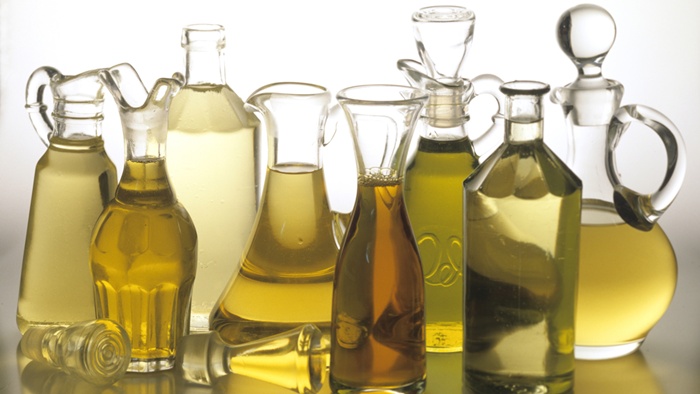
One of the items on my grocery list the other day was vegetable oil (always go armed with a list to avoid unnecessary and impulse buys)!
I like to shop in the health food section, but I noticed that most of the oils on display were polyunsaturated oils derived from grains and seeds like corn, sunflower or safflower. When I asked the person working in this department what they recommended for cooking, they told me that these oils would be the best choices because they were the lowest in saturated fat. They added that it was the saturated fat that I should really be avoiding, so butter would not be appropriate to cook with.
I have to tell you, I was completely surprised at this answer—this is not the best way to go from a nutritional perspective. Not that I’m advocating slathering your bread with butter, either, don’t get me wrong.
Are We Cooking With Toxins?
It’s certainly true that these plant or seed oils are polyunsaturated and contain less saturated fats than butter, but how can they be safely used and should we consume them in the amounts recommended by the “experts?”
Most of the oils sold in health sections of grocery stores are useless! The reason is because they are sold in clear, glass bottles and are exposed to light and excessive temperatures throughout the day. This damages the fat molecules in the oil causing them to oxidize. Which makes them an unhealthy source of fat.
Although they are polyunsaturated, most of these oils can’t be heated very much and have low smoke points. When exposed to higher temperatures, these products oxidize, so cooking with them means you will be consuming damaged oils containing altered fatty acids and transfats which are quite toxic.
Who wants to stir-fry their vegetables in toxins?
From a quality perspective, most of these oils are devoid of any of their natural antioxidants and un-oxidized fatty acids before you even buy them. To manufacture these oils, high temperatures, pressures and chemical treatments take away all the natural goodness.
To make matters worse, most of our diet has been altered from saturated fats contained within butter and meats, to polyunsaturated, “denatured” oils because they supposedly lower our risk for heart disease.
In my opinion, nothing could be further from the truth.
The over-consumption of omega-6 fats found in these cheap oils has produced an imbalance in the ratio of these types of fatty acids to the other fats we also require. In fact, this overreliance on omega-6 fats has increased the risk for heart disease. Why? Because excessive omega-6 fats can increase inflammation inside your body’s organs and arteries raising the risk of chronic disease.
Coconut Oil is One of the Good Guys
My recommendation is to switch your fats to those in the omega-3 family found in fish like salmon. A better choice of oils are olive, avocado, flax seed, canola or soy bean oil. Also note, only purchase extra-virgin oils sold in dark containers stored in cool places.
If you want to cook with these oils, use lower heat or try some coconut oil, my favorite. Coconut oil can stand up to higher temperatures and flavor your dish. Although coconut oil is saturated, if you consume it in modest quantities, it will not pose an adverse health issue in any way.
Source:
Teicholz, N., “We Might Be Replacing Trans Fats with Something Much Worse,” Yahoo! Shine website, June 11, 2014; https://ca.shine.yahoo.












